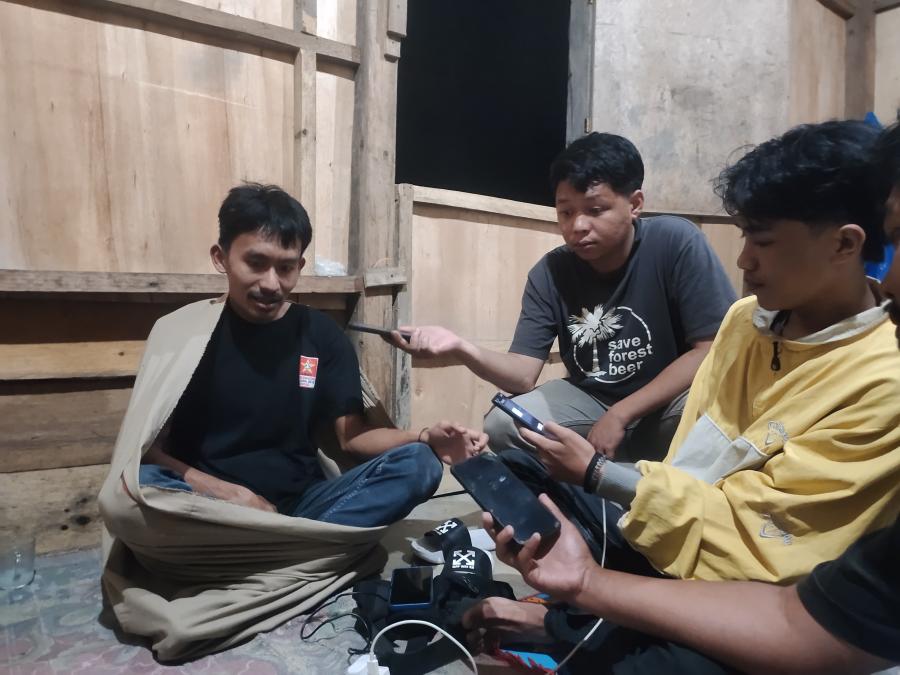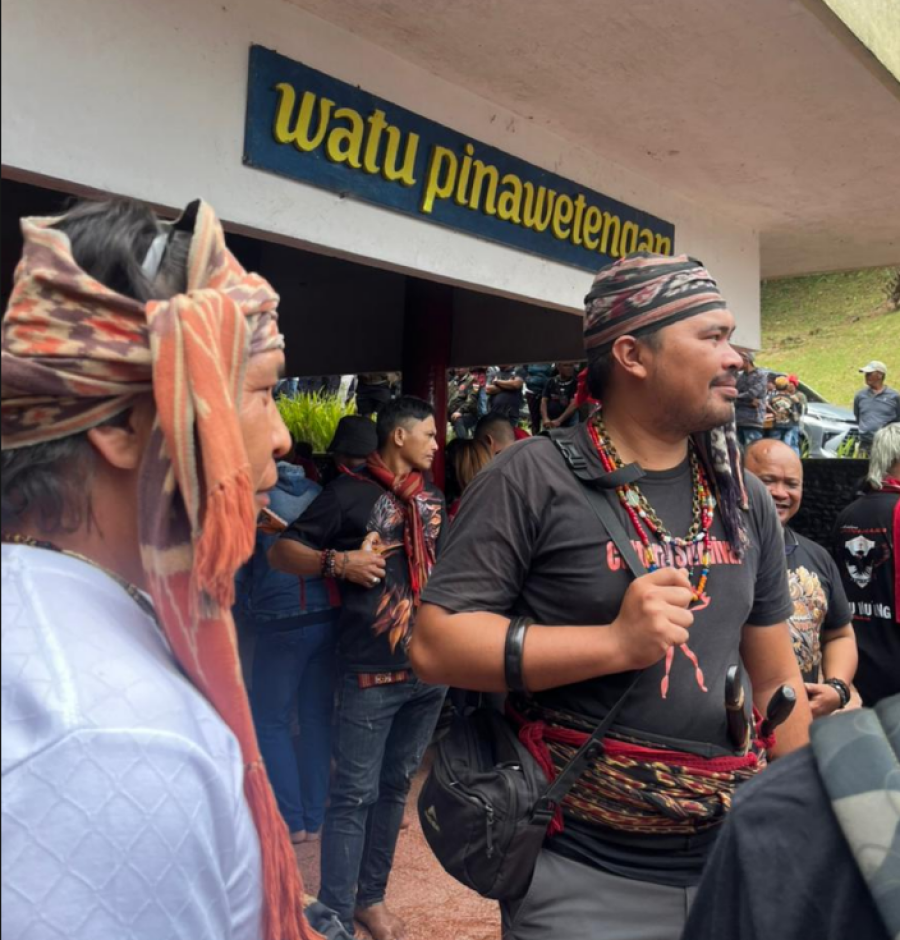
By Rikson Karundeng
In the heart of the Indonesian island of Sulawesi, a battle for survival is taking place. The ancient land of Minahasa, celebrated for its rich cultural heritage and unspoiled natural beauty, is in jeopardy. Widespread mining activities, driven by corporate greed and government neglect, are destroying the region's forests, contaminating its rivers, and undermining the very fabric of Indigenous communities.
In the midst of this environmental and cultural crisis, a ray of hope has emerged in the form of Kelung, an Indigenous media organization. Their Mapantik Né Kelung (The Writing of Kelung) project, backed by Cultural Survival’s Indigenous Community Media Fund, has become a powerful tool for recording, safeguarding, and amplifying the voices of the Minahasa people.
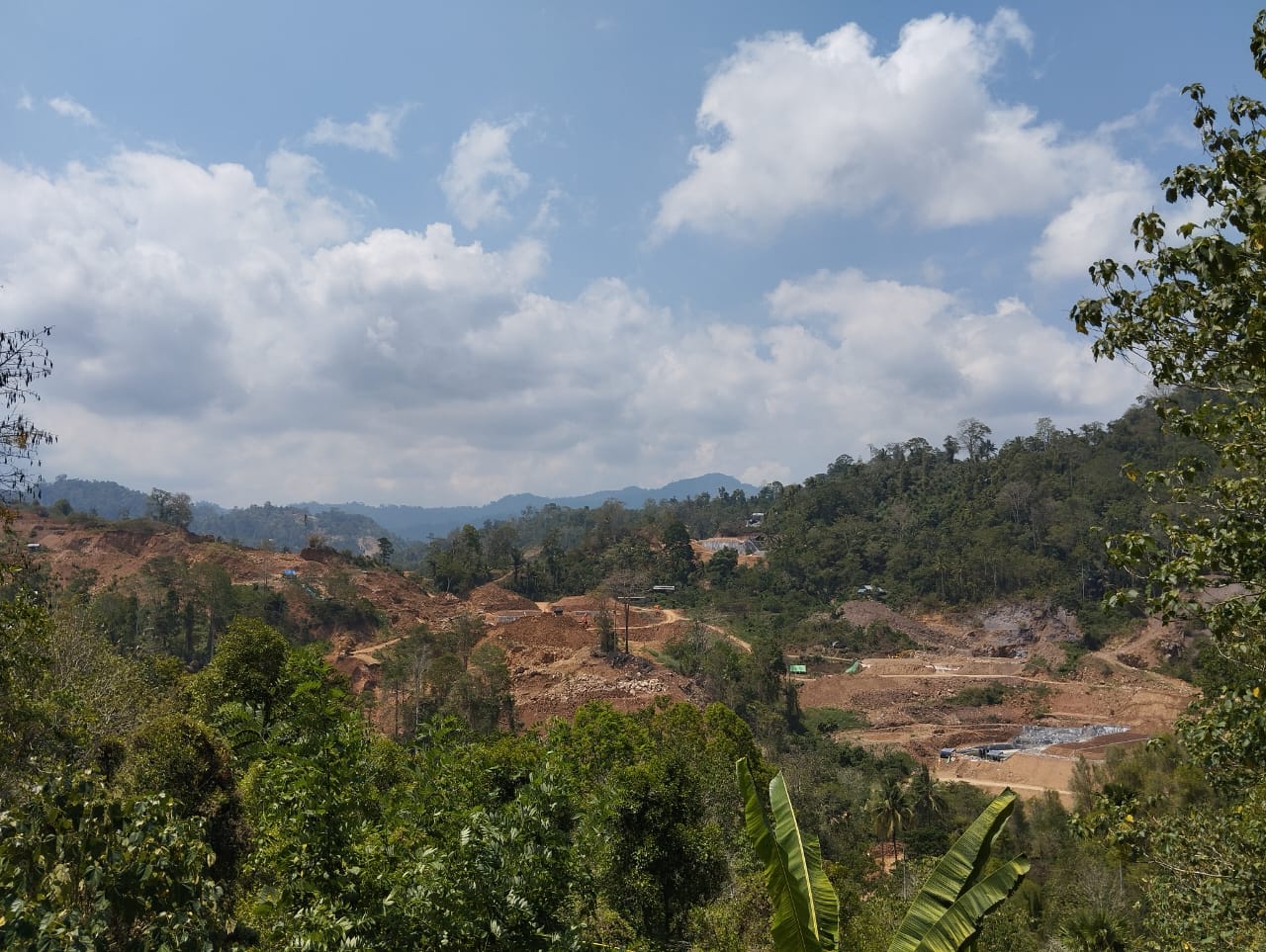
The Minahasa region, home to a diverse array of Indigenous communities, has long been a custodian of unparalleled biodiversity and spiritual traditions. However, this delicate balance is teetering on the brink of collapse. The insatiable demand for gold, minerals, and other natural resources has triggered a mining frenzy, leaving behind a trail of devastation.
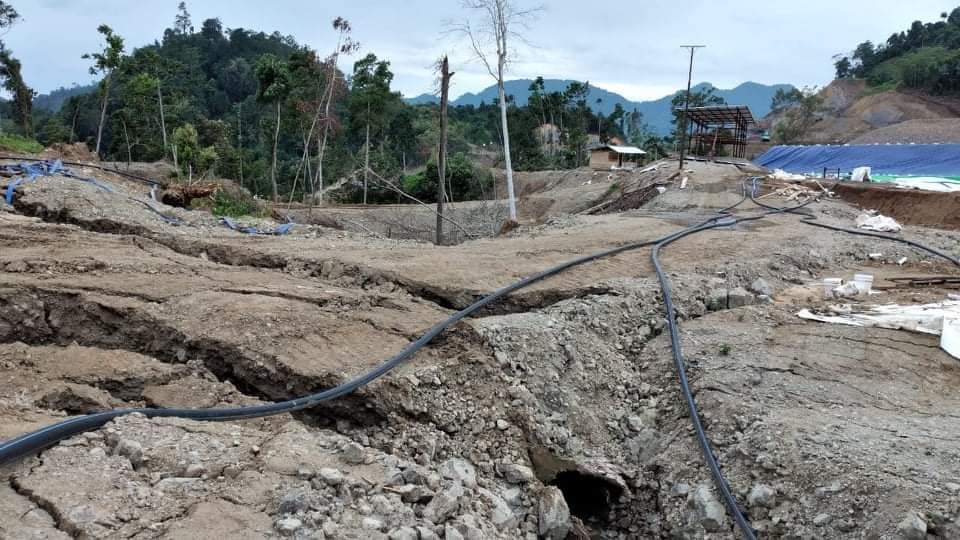
Deforestation, soil erosion, and water contamination have become synonymous with mining for copper, gold, and silver in Minahasa. Once-lush forests that harbored countless species are being razed to the ground while toxic chemicals seep into the region's lifeblood—its rivers and streams. The consequences for the environment and the communities that depend on it are catastrophic.
Recognizing the urgent need to address this crisis, Kelung embarked on a mission to empower the Minahasa people through the Mapantik Né Kelung project. At its core was the Papendangan Mapatik (Writing Workshop), a platform for Indigenous leaders, community members, and journalists to come together and share their stories.
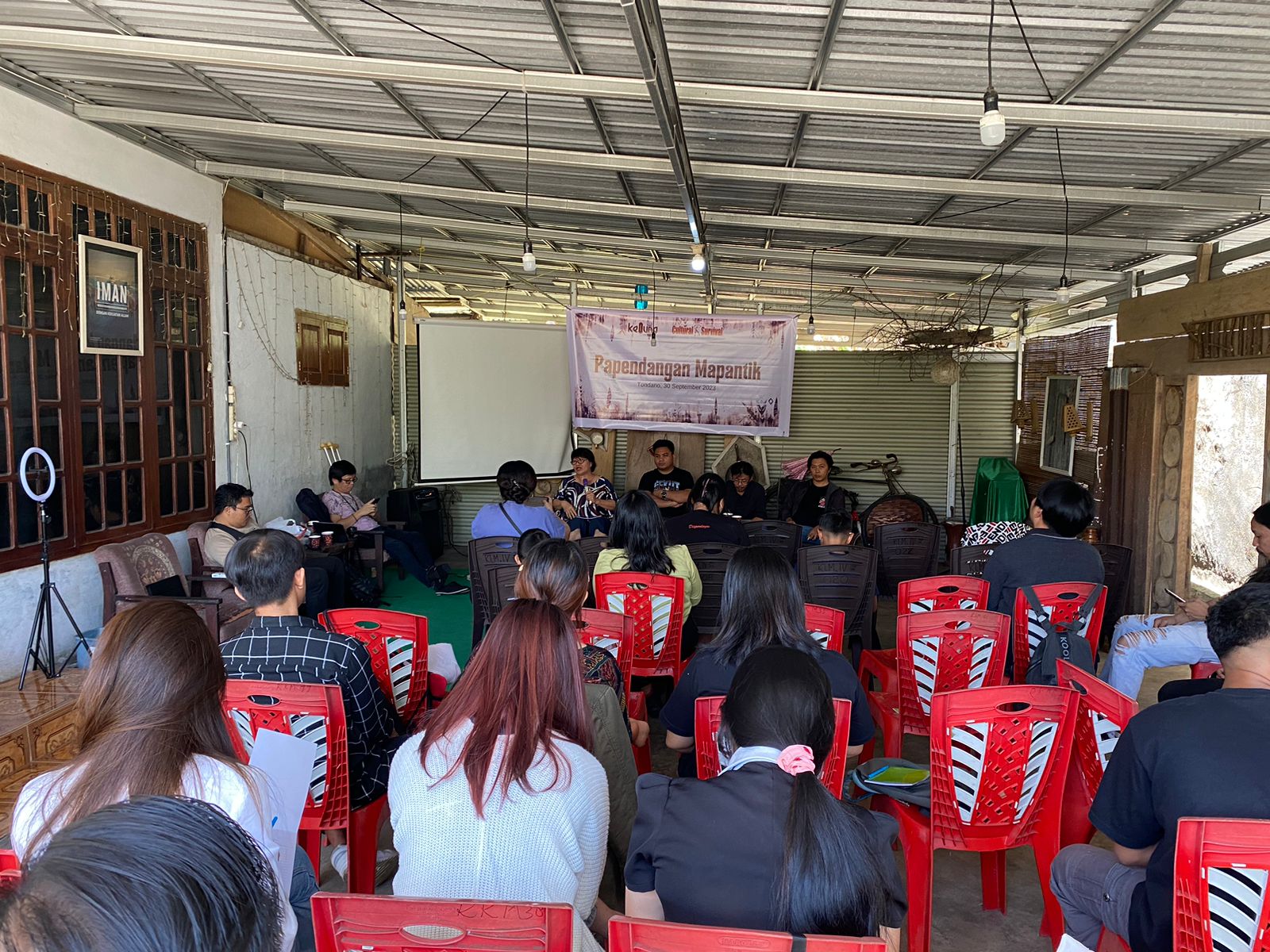
The workshop was more than just a training ground; it was a catalyst for change. Participants honed their writing and journalism skills, learning to document the devastating impacts of mining on their communities. Their voices, often silenced or marginalized, found a platform to be heard.
Unmasking the Truth
Over a six-month period, Kelung's dedicated team embarked on an ambitious reporting initiative, traveling across Minahasa to gather firsthand accounts of the impact of mining. From the heavily affected Tonséa’ territory to the unregulated "collective mines" of Ponosakan, they documented the human and environmental toll of mining.
Their stories, published across various Kelung media platforms, portrayed a harrowing picture of life in the shadow of mining. They uncovered corruption, negligence, and disregard for Indigenous rights fueling this destructive industry. However, they also highlighted the resilience and determination of the Minahasa people as they fought to protect their ancestral lands.
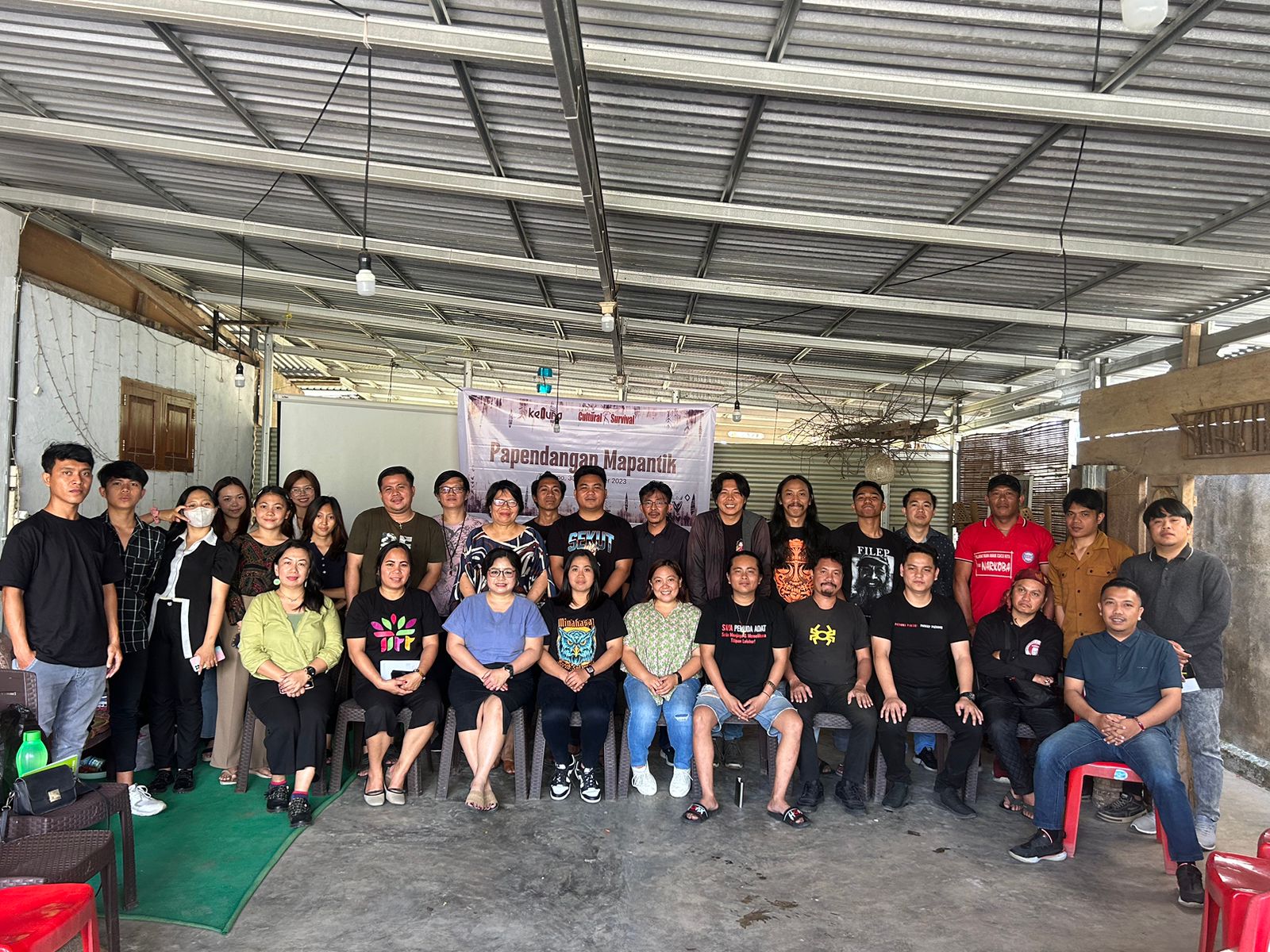
Kelung's efforts went beyond just documenting the crisis. The project also formed important partnerships with local government officials and other stakeholders, promoting a collaborative approach to address the challenges in the region. A partnership with Radio Republik Indonesia (RRI) significantly expanded the reach of Kelung's stories to a wider audience. Furthermore, the project included a cultural preservation component, with a focus on restoring waruga, ancient rock sarcophagi, in Tomohon City. This initiative preserved a crucial part of Minahasa's heritage and inspired a new generation to value and protect their cultural identity.
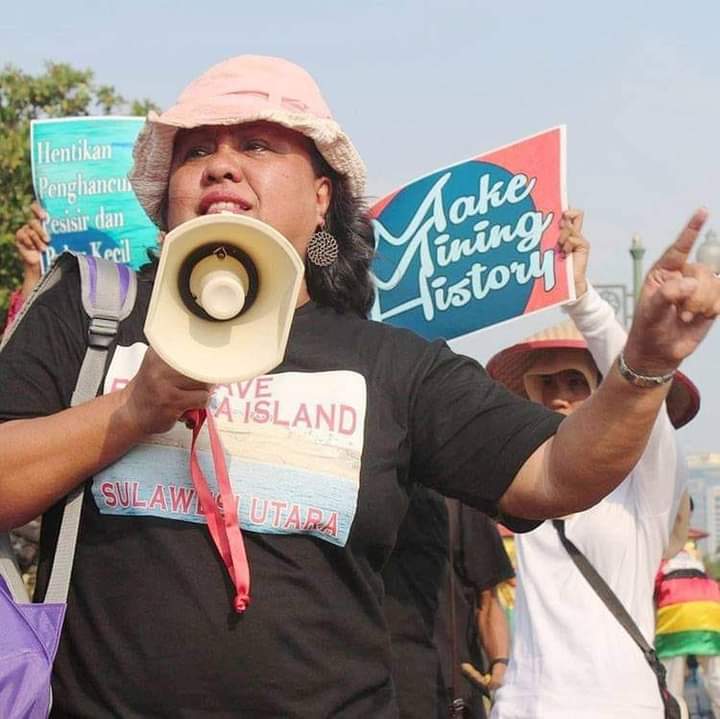
As the Mapantik Né Kelung project comes to an end, its impact is unquestionable. Kelung has empowered Indigenous communities to be powerful storytellers, capable of shaping the narrative around their struggles and aspirations. The project has also fostered a sense of unity and solidarity among the Minahasa people, strengthening their to protect their land and culture. Kelung's journey is a testament to the power of media and education in driving social change. By uplifting the voices of the marginalized, Kelung has sparked a movement that demands justice, accountability, and a sustainable future for the Minahasa people.
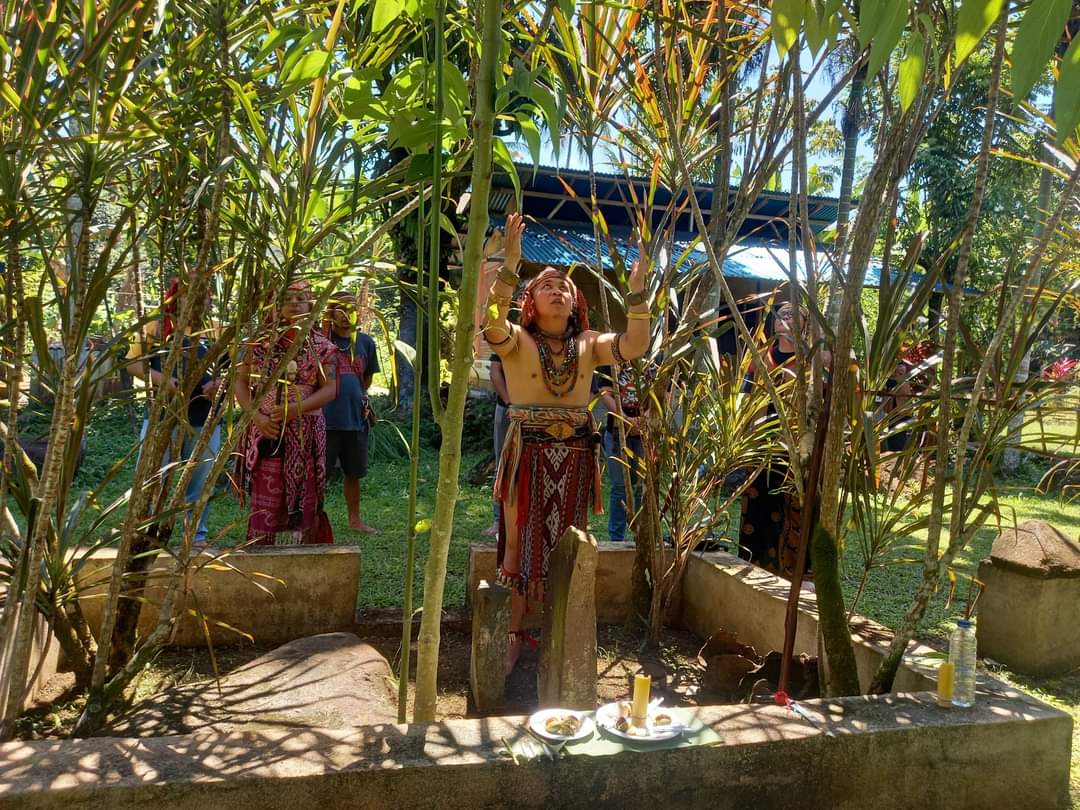
In the words of Supit Pontoh, the Tonaas Wangko Pakasa’an Tonséa’, "This project has given the Tonséa’ people a platform to voice our concerns and share our experiences." It will continue to inspire others to stand up for their rights and protect the planet's precious ecosystems. The battle for Minahasa is far from over, but the Mapantik Né Kelung project has laid the foundation for a more just and equitable future. By documenting the truth, empowering communities, and building alliances, Kelung has shown the world that the voices of Indigenous Peoples are a force to be reckoned with.
Read the articles written in Indonesian:
--Rikson Karundeng is Editor in Chief at www.kelung.id.
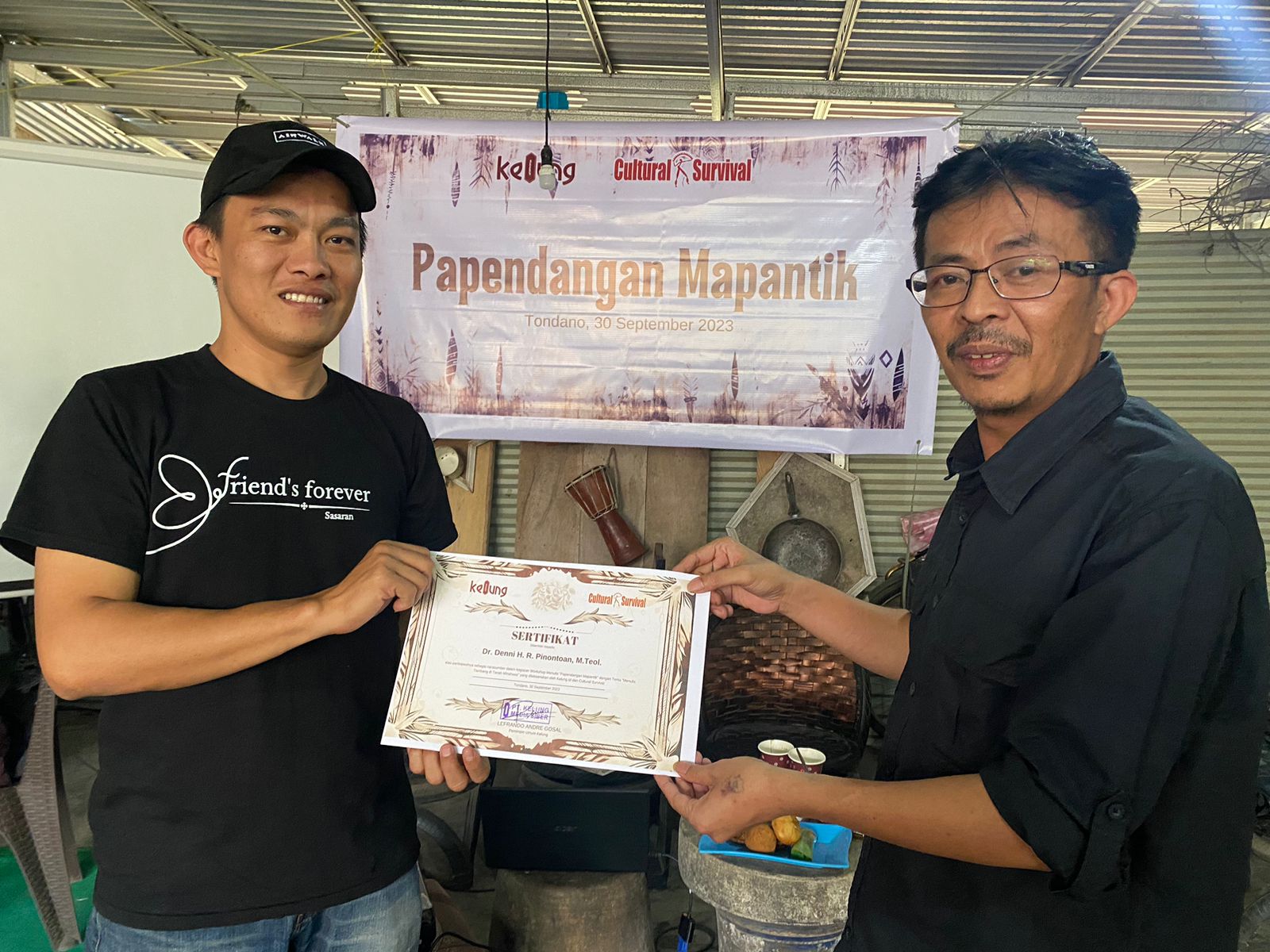
In 2023, Kelung Media Siber / kelung.id received a grant from the Indigenous Community Media Fund, which provides opportunities for international Indigenous radio stations to strengthen their infrastructure and broadcast systems and creates training opportunities for journalism, broadcasting, audio editing, technical skills, and more for radio journalists from Indigenous communities around the world. In 2023, the Indigenous Community Media Fund supported communities with 60 grants totaling $420,000 to Indigenous community media in 20 countries, supporting 87 Indigenous Peoples.

